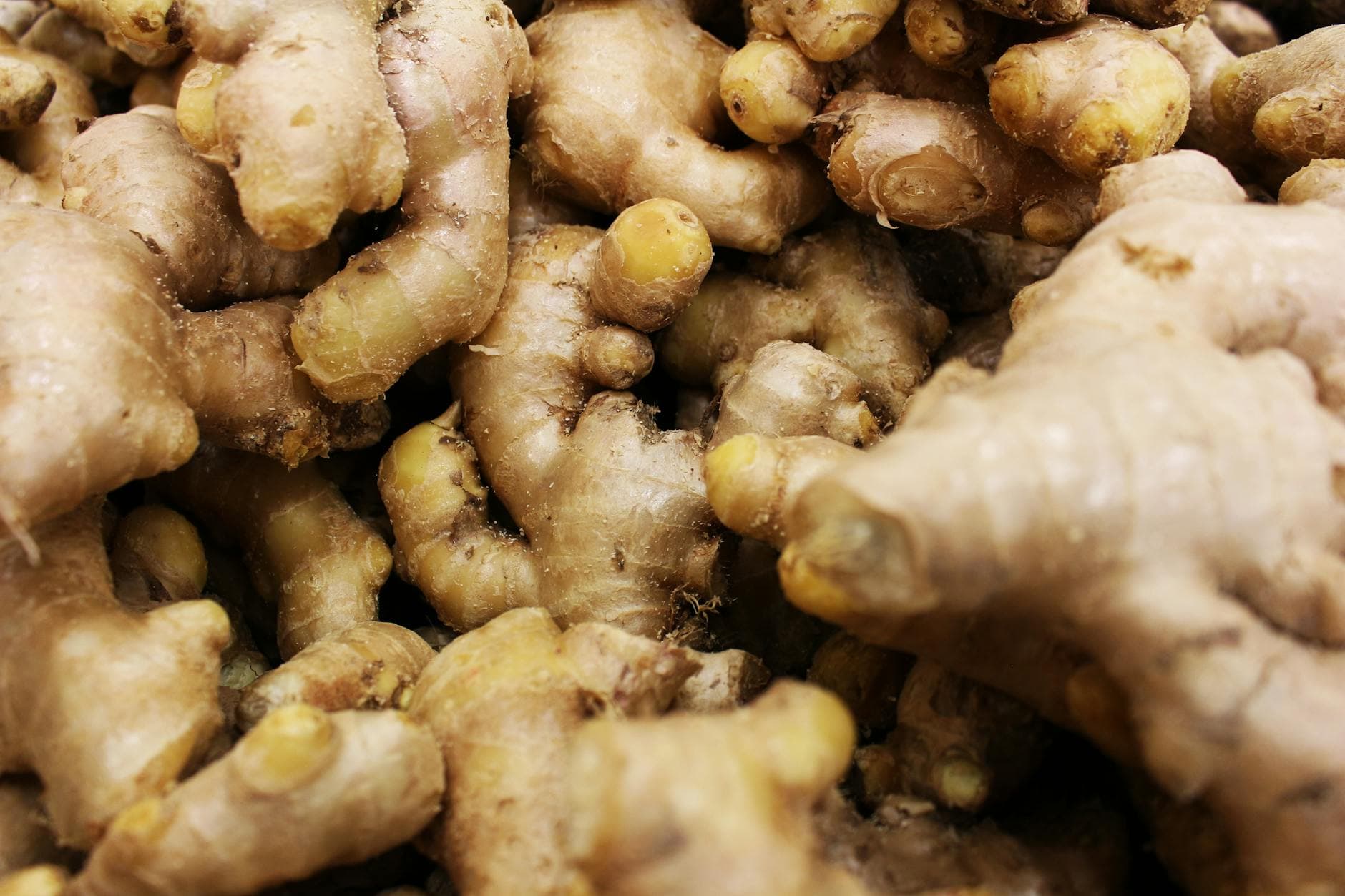Irritable Bowel Syndrome (IBS) is a common, chronic gastrointestinal disorder affecting millions worldwide. Characterized by a cluster of symptoms including abdominal pain, bloating, gas, diarrhea, and constipation, IBS can significantly impact daily life. While conventional treatments exist, many individuals seek natural approaches to manage their symptoms, often turning to dietary changes, lifestyle adjustments, and the power of herbs. Healbal is dedicated to exploring these natural pathways to wellness, offering insights into how specific herbs and mindful eating can foster gut health and provide genuine relief from IBS discomfort.
Understanding IBS is the first step toward effective management. This article will delve into the potential causes and common symptoms of this condition, emphasizing how a holistic approach, particularly through the strategic use of certain herbs and dietary considerations, can make a profound difference. We'll explore evidence-backed herbal remedies, their mechanisms of action, and crucial safety considerations to help you navigate your journey toward a calmer, healthier digestive system.
Causes
Understanding the Roots of IBS
The exact cause of Irritable Bowel Syndrome is not fully understood, but it's believed to be a multifactorial condition involving a complex interplay of factors. It's often described as a disorder of gut-brain interaction, meaning there's a problem with how the brain and gut work together.
- Altered Gut Motility: The muscles in the bowel wall may contract too strongly or too weakly, too quickly or too slowly, leading to diarrhea, constipation, or both.
- Visceral Hypersensitivity: People with IBS often have heightened sensitivity to normal sensations in the gut, perceiving them as pain or discomfort.
- Gut Microbiome Imbalance (Dysbiosis): An imbalance of beneficial and harmful bacteria in the gut, or even Small Intestinal Bacterial Overgrowth (SIBO), is frequently observed in IBS patients and can contribute to symptoms.
- Gut-Brain Axis Dysfunction: The communication pathway between the brain and the gut is disrupted, leading to altered pain perception, mood changes, and digestive irregularities.
- Post-Infectious IBS: Some individuals develop IBS symptoms after a severe bout of gastroenteritis (stomach flu), suggesting a link to past infections.
- Food Sensitivities: While not true allergies, certain foods (like FODMAPs, gluten, dairy, or specific food additives) can trigger symptoms in susceptible individuals.
- Stress and Psychological Factors: Stress, anxiety, and depression do not cause IBS, but they can significantly worsen symptoms by influencing the gut-brain axis.
- Genetics: A family history of IBS may increase an individual's risk, suggesting a genetic predisposition.
Symptoms
Recognizing the Signs of IBS
IBS symptoms vary widely among individuals, both in type and severity. The hallmark of IBS is recurrent abdominal pain associated with changes in bowel habits. It's crucial to consult a healthcare professional for a proper diagnosis, as these symptoms can overlap with other conditions.
- Abdominal Pain or Cramping: This is the most common symptom, often relieved after a bowel movement. The pain can range from mild to severe.
- Changes in Bowel Habits: This can manifest as diarrhea (IBS-D), constipation (IBS-C), or alternating patterns of both (IBS-M).
- Bloating and Gas: Many individuals with IBS experience uncomfortable abdominal distension and excessive gas.
- Mucus in Stool: The presence of white or clear mucus in stool is common in IBS.
- Feeling of Incomplete Evacuation: A persistent sensation that the bowel hasn't been fully emptied after a bowel movement.
- Urgency: A sudden, strong need to have a bowel movement.
When to See a Doctor (Red Flags)
While IBS is not life-threatening, certain symptoms warrant immediate medical attention, as they may indicate a more serious underlying condition:
- Unexplained Weight Loss: Losing weight without trying.
- Blood in Stool: Any visible blood, whether bright red or dark.
- Nighttime Symptoms: Waking up from sleep due to abdominal pain or the need to have a bowel movement.
- Persistent Vomiting: Frequent or severe nausea and vomiting.
- Difficulty Swallowing: Trouble or pain when swallowing food.
- Iron Deficiency Anemia: Low iron levels not explained by other factors.
- Family History: If you have a family history of colon cancer, inflammatory bowel disease (IBD), or celiac disease, your symptoms should be thoroughly investigated.
Always consult a medical professional for persistent or severe symptoms to rule out other conditions and receive an accurate diagnosis.
Natural Remedies
Lifestyle & Dietary Strategies for IBS Management
Beyond herbal support, adopting specific lifestyle and dietary habits can significantly alleviate IBS symptoms and promote overall gut health. These strategies often form the foundation of an IBS management plan.
- Identify and Avoid Trigger Foods: Keep a food diary to pinpoint specific foods that worsen your symptoms. Common triggers include caffeine, alcohol, spicy foods, fatty foods, artificial sweeteners, and certain dairy products.
- Explore a Low-FODMAP Diet: For many, reducing intake of Fermentable Oligosaccharides, Disaccharides, Monosaccharides, and Polyols (FODMAPs) can provide significant relief. This diet involves an elimination phase followed by reintroduction to identify personal triggers. It's best done under the guidance of a dietitian.
- Increase Fiber Gradually: While some fiber can worsen bloating, soluble fiber (found in oats, barley, psyllium, and certain fruits/vegetables) can help regulate bowel movements, especially for IBS-C. Introduce it slowly and ensure adequate hydration.
- Stay Hydrated: Drinking plenty of water throughout the day is crucial, particularly for managing constipation and ensuring proper digestion.
- Manage Stress Effectively: Given the strong gut-brain connection, stress is a major IBS trigger. Incorporate stress-reducing practices like mindfulness meditation, yoga, deep breathing exercises, spending time in nature, or engaging in hobbies you enjoy.
- Regular Exercise: Moderate physical activity can help regulate bowel function, reduce stress, and improve overall well-being. Aim for at least 30 minutes of moderate exercise most days of the week.
- Eat Regular Meals: Eating at consistent times each day can help regulate digestive function. Avoid skipping meals or eating very large portions.
- Practice Mindful Eating: Eat slowly, chew your food thoroughly, and pay attention to your body's hunger and fullness cues. This can aid digestion and reduce discomfort.
- Consider Probiotics: Certain probiotic strains (e.g., Bifidobacterium and Lactobacillus) have shown promise in improving IBS symptoms, especially bloating and gas. Consult a healthcare provider to find a suitable strain and dosage.
Herbal Treatments
Evidence-Based Herbal Options for IBS Relief
Nature offers a pharmacopoeia of herbs that can help soothe digestive distress, reduce inflammation, and calm the nervous system, all of which are beneficial for IBS management. Always consult a healthcare professional before starting any new herbal regimen, especially if you have existing health conditions or are taking medications.
- Peppermint (Mentha x piperita):
Benefits: Peppermint oil is one of the most well-researched herbal remedies for IBS. Its active compound, L-menthol, has antispasmodic properties that relax the smooth muscles of the digestive tract, reducing abdominal pain, cramping, and bloating.
Usage: Enteric-coated peppermint oil capsules are most effective, as they release the oil directly into the small intestine, bypassing stomach acid. Peppermint tea can also provide some relief for milder symptoms.
Cautions: Can worsen heartburn or GERD in some individuals. Avoid if you have a hiatal hernia or severe liver disease. - Ginger (Zingiber officinale):
Benefits: Known for its anti-inflammatory and anti-nausea properties, ginger can help soothe an upset stomach, reduce bloating, and stimulate digestive motility. It's particularly helpful for post-meal discomfort.
Usage: Fresh ginger tea, ginger chews, or ginger root capsules. Start with small doses.
Cautions: High doses can thin blood; caution with anticoagulant medications. May cause mild heartburn in some. - Chamomile (Matricaria recutita):
Benefits: Chamomile is renowned for its calming and anti-inflammatory effects. It can help relax the smooth muscles of the gut, reduce spasms, and alleviate stress-related digestive upset, making it ideal for IBS symptoms exacerbated by anxiety.
Usage: Primarily as a tea. Steep 1-2 teaspoons of dried flowers in hot water for 5-10 minutes.
Cautions: Generally safe, but can cause allergic reactions in individuals sensitive to the ragweed family. May interact with blood thinners. - Fennel (Foeniculum vulgare):
Benefits: Fennel seeds are a traditional carminative, meaning they help expel gas and reduce bloating. They also possess antispasmodic properties that can ease intestinal cramping.
Usage: Chew on a small amount of fennel seeds after meals, or steep 1 teaspoon of crushed seeds in hot water for a digestive tea.
Cautions: Generally safe. High doses may have estrogenic effects, so caution with hormone-sensitive conditions. - Slippery Elm (Ulmus rubra) & Marshmallow Root (Althaea officinalis):
Benefits: These demulcent herbs are rich in mucilage, a gel-like substance that coats and soothes the inflamed lining of the digestive tract. They can help reduce irritation, protect against stomach acid, and promote healing, beneficial for both diarrhea and constipation.
Usage: Powdered form mixed with water, or in capsules. Follow product instructions.
Cautions: Due to their mucilage content, they can interfere with the absorption of medications. Take at least an hour before or after other medications. - Turmeric (Curcuma longa):
Benefits: The active compound curcumin in turmeric is a potent anti-inflammatory agent. While more research is needed specifically for IBS, its anti-inflammatory properties may help reduce gut inflammation and pain.
Usage: Incorporate fresh or powdered turmeric into cooking, or use standardized curcumin supplements.
Cautions: Can thin blood; caution with blood-thinning medications. May cause stomach upset in high doses. - Artichoke Leaf Extract (Cynara scolymus):
Benefits: Studies suggest artichoke leaf extract can improve digestive symptoms like bloating, abdominal pain, and constipation in IBS patients by stimulating bile production and promoting healthy gut motility.
Usage: Available in capsule form. Follow manufacturer's dosing recommendations.
Cautions: Avoid if you have bile duct obstruction or gallstones.
Important Considerations:
- Interactions & Contraindications: Always inform your doctor about any herbs you are taking. Some herbs can interact with medications (e.g., blood thinners, antacids, antidepressants, thyroid hormones) or are contraindicated during pregnancy, lactation, or with specific medical conditions.
- Quality Matters: Choose high-quality, reputable brands for herbal supplements to ensure purity and potency.
- Start Low, Go Slow: Begin with the lowest effective dose and gradually increase if needed, while monitoring your body's response.
Prevention
Proactive Steps for Long-Term Gut Wellness
While there's no guaranteed way to entirely prevent IBS, adopting a proactive approach to gut health and lifestyle can significantly reduce the likelihood of symptom flare-ups and promote long-term digestive comfort. Many of the strategies for managing IBS also serve as excellent preventive measures.
- Maintain a Balanced Diet: Focus on whole, unprocessed foods rich in diverse fiber from fruits, vegetables, and whole grains. This supports a healthy gut microbiome.
- Regular Probiotic Intake: Incorporate fermented foods (like yogurt, kefir, sauerkraut, kimchi) or a high-quality probiotic supplement to maintain a healthy balance of gut bacteria.
- Prioritize Stress Management: Chronic stress is a known disruptor of gut function. Integrate daily stress-reduction techniques into your routine, such as meditation, deep breathing, spending time in nature, or engaging in hobbies.
- Stay Physically Active: Regular, moderate exercise aids digestion, reduces stress, and promotes overall well-being, all of which contribute to a healthy gut.
- Ensure Adequate Sleep: Poor sleep quality can impact gut health and exacerbate IBS symptoms. Aim for 7-9 hours of quality sleep per night.
- Hydrate Consistently: Drinking enough water is fundamental for digestive health, helping to keep stools soft and facilitating nutrient absorption.
- Avoid Known Triggers: If you've identified specific foods or habits that trigger your symptoms, proactively avoid them to prevent future discomfort.
- Practice Mindful Eating: Eating slowly and consciously, without distractions, can improve digestion and reduce the likelihood of post-meal distress.
- Regular Check-ups: Maintain open communication with your healthcare provider, especially if you experience new or worsening symptoms, to ensure your gut health is continuously monitored.










